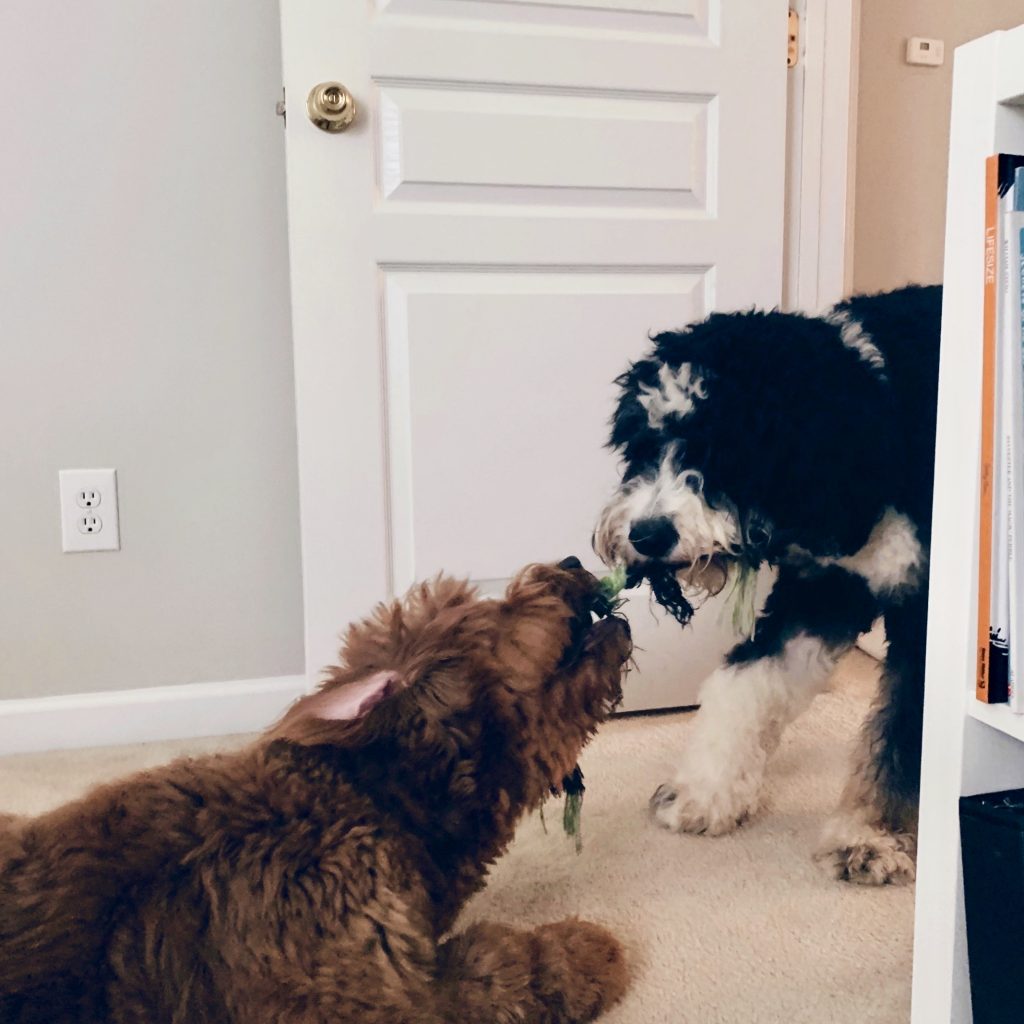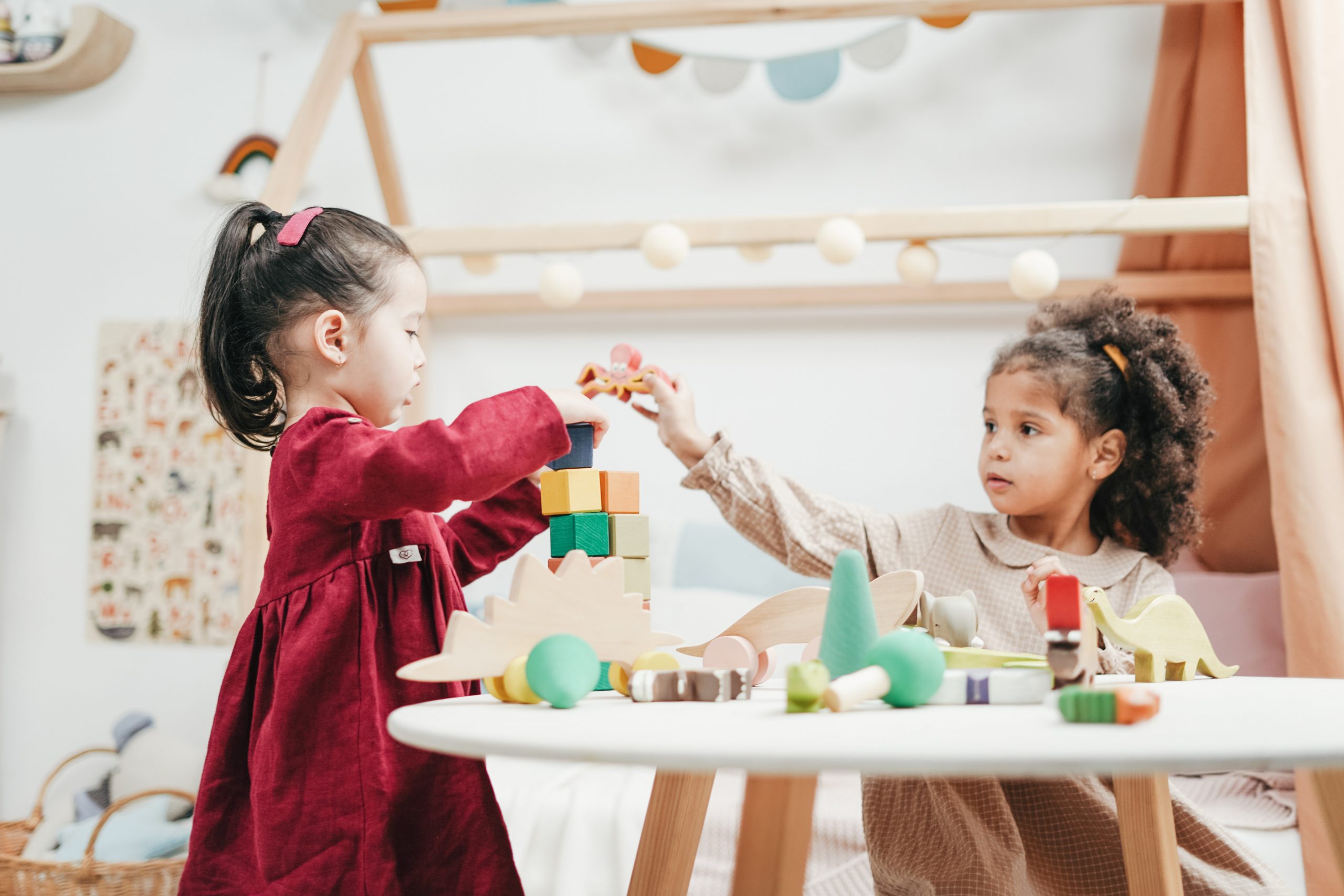My therapy sessions often involve many different language strategies to increase language skills in toddlers. In a perfect world, I will introduce a strategy, give examples and practice the strategy with activities that are relevant to my client and their family. At the end of the session I will provide ideas on how to incorporate that strategy into their daily routines until our next session. Today I want to introduce TWO language strategies: Parallel-talk and self-talk.
What is Parallel-Talk?
Parallel-talk: Talking about or narrating what your child is doing.

Examples:
- “Uh oh! Your tower fell down.”
- “Oh wow, that was a big bite!”
- “Your brother is running away with your toy!” (are you surprised I included one for my dogs? probably not)
What is Self-Talk?
Self-talk: Talking about or narrating what you are doing.

Examples:
- “Okay, I need to find my keys and then we are ready to go!”
- “This house is a mess! I’m just going to take a nap.”
- “What do I need to do today? First I need a cup of coffee. Maybe two.”
What Is The Point?
It may seem like you are just talking to talk. But kids are sponges! They are constantly listening (whether you think so or not) and observing what you are doing. By using parallel and self-talk you are matching words with actions in real time. Your child is getting a visual representation of a word, which helps them grow their vocabulary.
Things To Note
As you begin planning how to incorporate these strategies, I have a few things I want you to keep in mind.
Timing is Everything
Don’t feel like these strategies are something that you need to do all day everyday. That would be SO exhausting! Instead, pick a few routines or moments throughout the day. For example, incorporate parallel-talk while your child is playing or incorporate self-talk when you are cooking dinner as your child sits close by.
Reduce Expectations
Keep in mind how your child communicates. If they are primarily imitating and using 1-word phrases, they most likely won’t imitate you when you say “I would like blueberries and water for my snack today.” That’s a lot to expect! Your child will gradually increase their phrase lengths (don’t worry, I have a strategy for this one too) and will work their way up to using full sentences in conversation.
Patience is Key
If your child doesn’t imitate you right away, that is okay! It’s important to stick with these activities rather than expecting your child to communicate in sentences right off the bat. Repeat these interactions throughout the week so that you know your child hears the same vocabulary frequently. For example, if you really want your child to say “eat,” when they are hungry, use the word “eat” around each meal, look for books that have people eating, note when you see someone eating on TV, etc.
How have these strategies helped your family? I would love to know! Feel free to comment below or send a message straight to my inbox.



